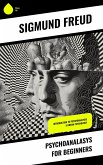In "Psychopathology of Everyday Life," Sigmund Freud presents a groundbreaking exploration of the unconscious mind through an analysis of seemingly trivial errors, slips of the tongue, and forgetfulness that pervade everyday life. Freud employs a probing literary style that intertwines clinical case studies with theoretical discussions, reflecting the early 20th century's burgeoning interest in psychology and psychoanalysis. Drawing on a range of examples, Freud elucidates how these commonplace phenomena serve as windows into deeper psychological truths, highlighting the interplay between consciousness and the unconscious. Through this lens, Freud not only challenges prevailing notions of human behavior but also provides a rich context for understanding the nuances of mental processes. Sigmund Freud, often regarded as the founder of psychoanalysis, was deeply influenced by the socio-cultural landscape of his time, particularly the stresses of modern life in Vienna. His encounters with patients led him to formulate theories that emphasized the significance of repressed desires and unresolved conflicts. Freud's extensive background in medicine and his fascination with the intricacies of human behavior shaped his scholarly approach, providing readers with a profound understanding of mental phenomena that were previously overlooked. "Psychopathology of Everyday Life" is an essential read for anyone interested in psychology, offering not just insight into Freudian concepts but also an invitation to reflect on the hidden motivations behind our everyday actions. This work is particularly relevant for scholars, students, and general readers seeking to explore the complexities of human behavior and the influences of the unconscious.
Dieser Download kann aus rechtlichen Gründen nur mit Rechnungsadresse in A, B, BG, CY, CZ, D, DK, EW, FIN, F, GR, HR, H, IRL, I, LT, L, LR, M, NL, PL, P, R, S, SLO, SK ausgeliefert werden.









